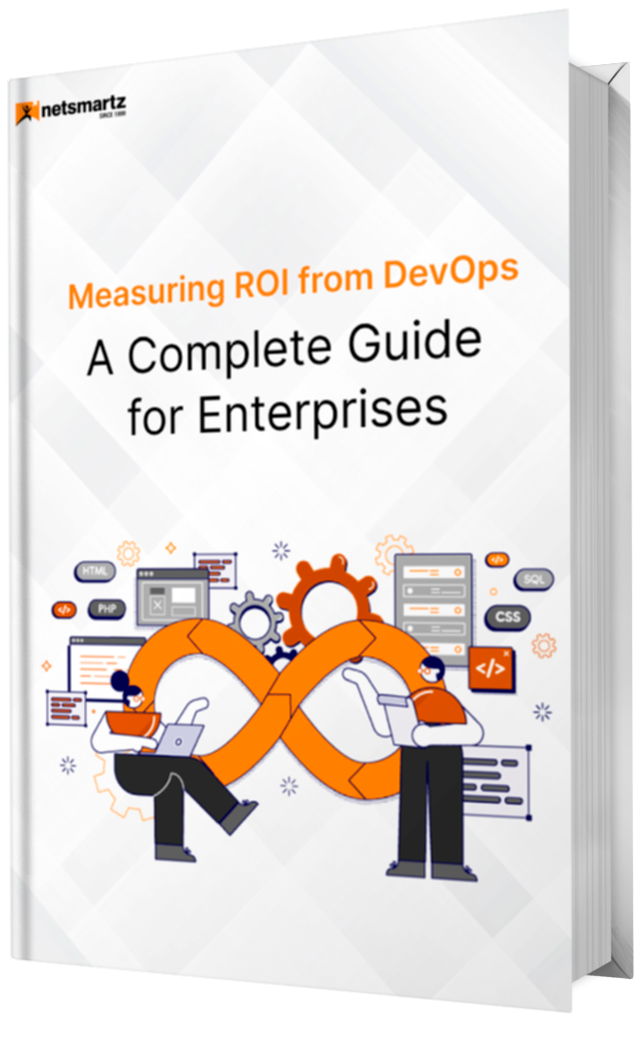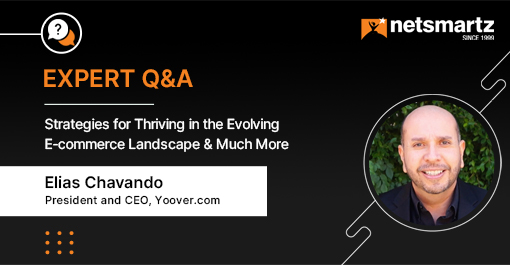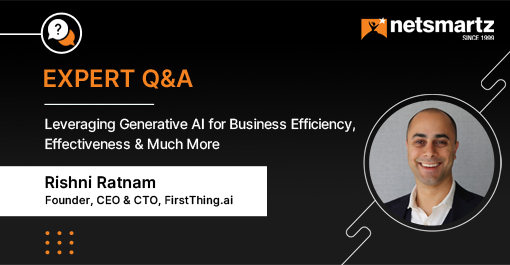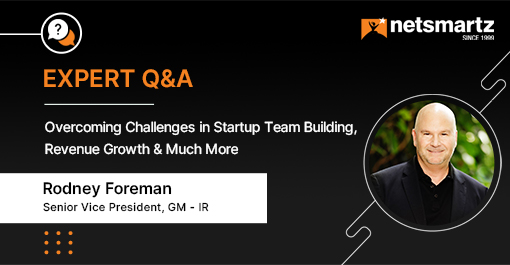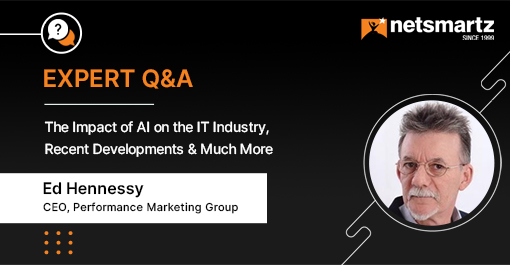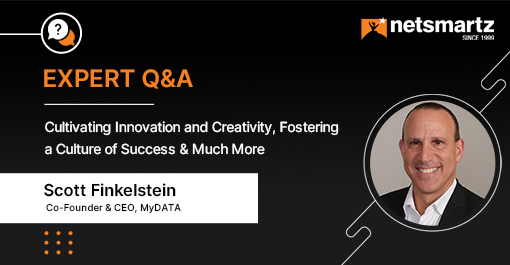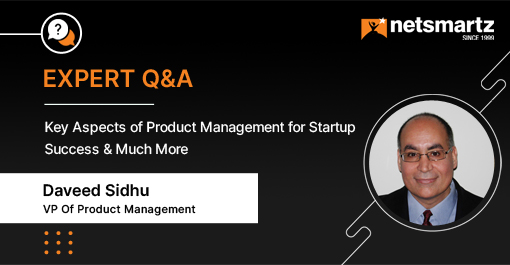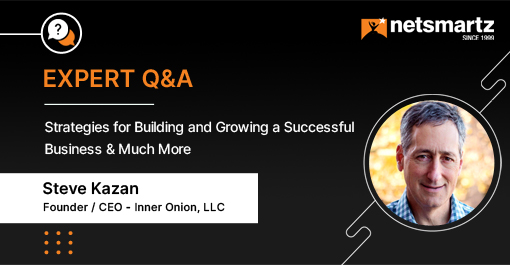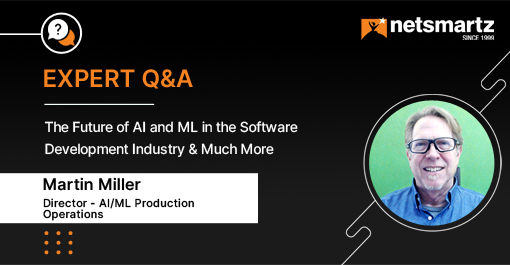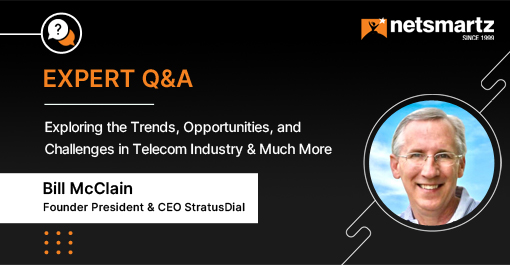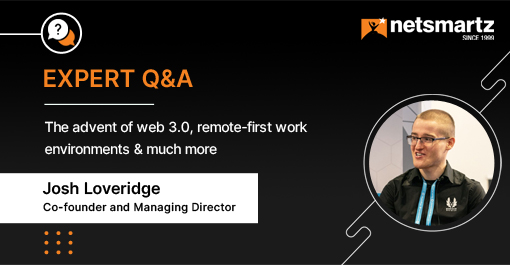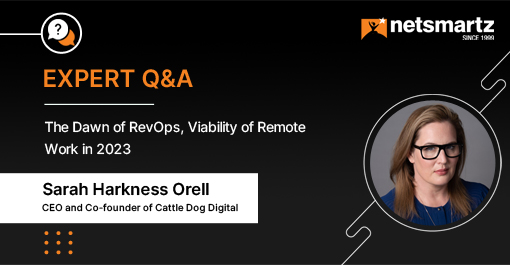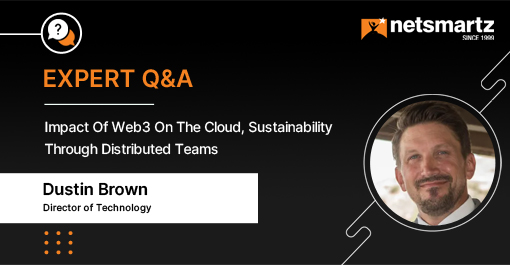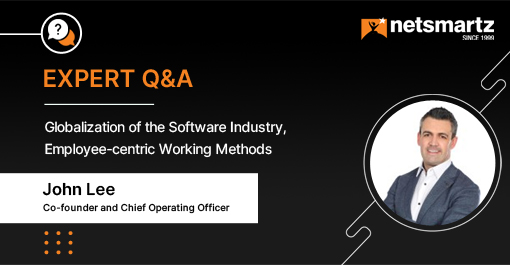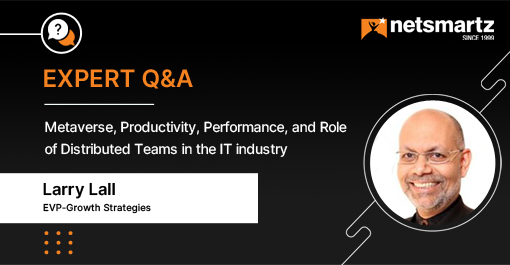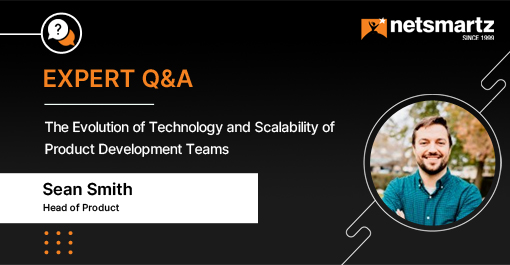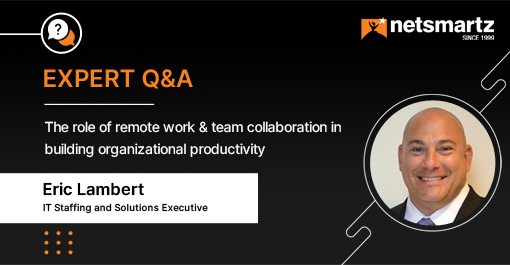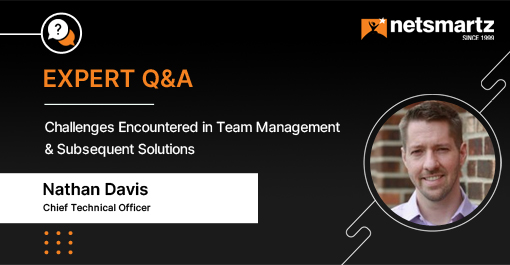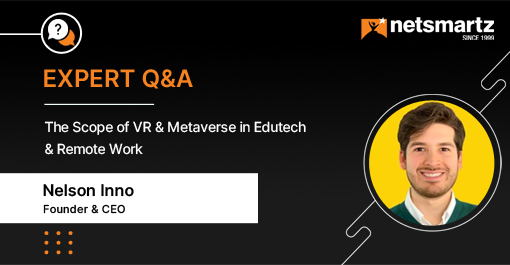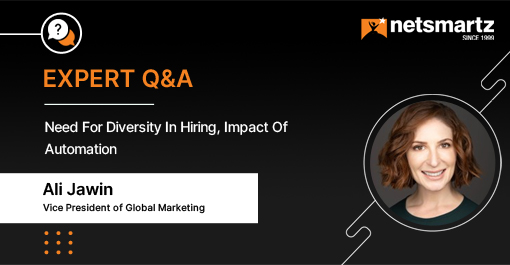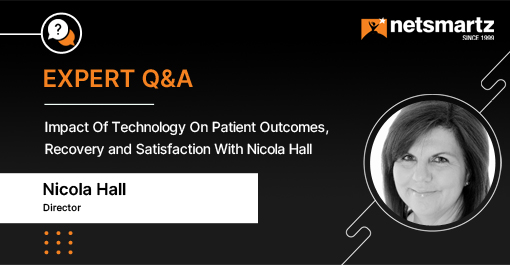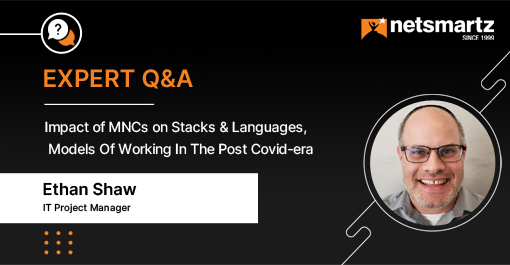Leveraging Generative AI for Business Efficiency, Effectiveness & Much More
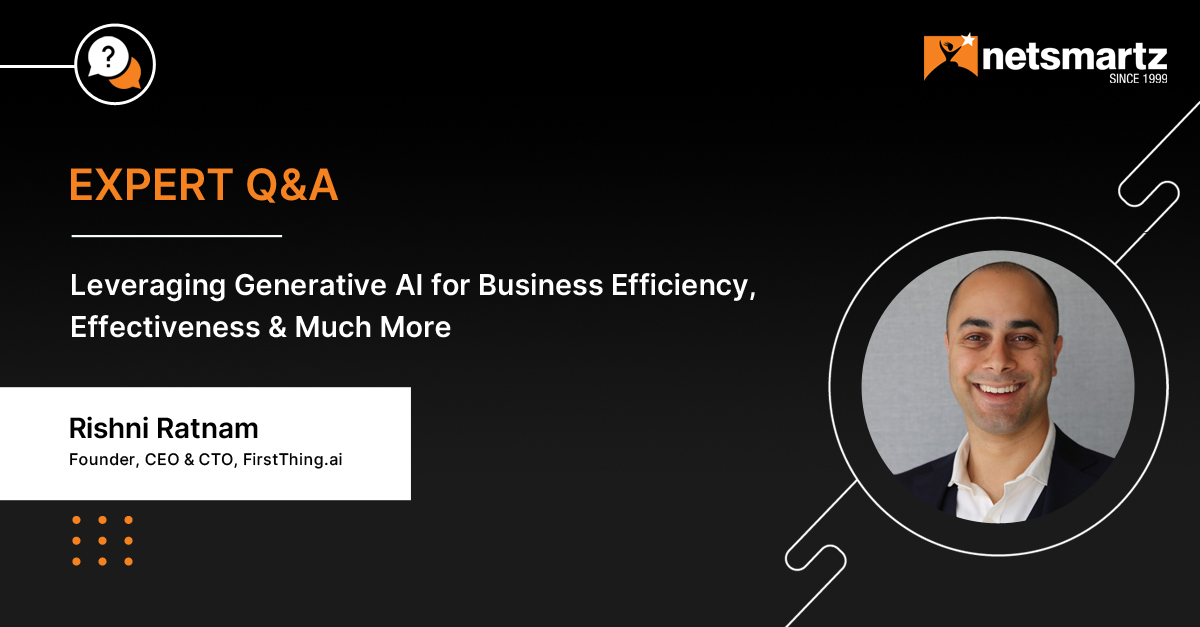
As businesses continue to explore the potential of artificial intelligence (AI) technologies, generative AI has emerged as a game-changer, particularly in areas involving language or images. This cutting-edge technology enables machines to produce creative and insightful outputs, offering immense possibilities for efficiency and effectiveness gains.
To help businesses harness the power of generative AI, we turn to expert Rishni Ratnam CEO & CTO of FirstThing.ai , who shared valuable insights into the key steps, industry applications, challenges, and recommended tools for successful implementation.
Keeping on reading to learn his insights!
Want to contribute to our expert insights?
Contact Us About Rishni Ratnam
About Rishni Ratnam
Rishni is a multidisciplinary entrepreneur with deep skills in consulting, new venture building, machine learning, data science, software development and design thinking. He is currently the CEO of MXA Consulting; an Australian strategy, technology and design consultancy that brings together extensive experience with digital expertise, and the Founder of FirstThing.ai; a SaaS company building productivity tools for the consulting industry.
1. What are the key steps or considerations for a business looking to implement generative AI techniques to achieve efficiency and effectiveness gains?
Getting value out of generative AI involves the same considerations as any previous advances in AI, except that “what is possible” has dramatically shifted, particularly in areas involving language or images. To gain value, organizations should put in place initiatives to address the following three questions: 1. What are the high-value use cases? 2. How do we get our data foundations in place to be able to do this well and safely? 3. How do we bring our people along the journey and ensure they have the capability to succeed? To determine the high-value use cases, first map out your business value chain or operating model, and then assess the desirability, viability and feasibility of each of the major use-cases you can identify. Organizations that don’t have strong internal capability to do this should bring in expert support, particularly to understand the viability and feasibility components. Getting the data foundations right is a challenging topic that requires an overall high level of data maturity to safely handle the security, privacy and ethical issues involved. Key foundational elements include a well-articulated data strategy, together with operational data governance processes and accountabilities. Consider how the principles in these apply to your high-value use cases, and overcome blockers where they arise by iterating the principles through the lens of “how might we safely do this?” Finally, to bring people along the journey, remember that many people have justified concerns about AI technologies, ranging from “will I still have a job” to “I don’t trust the AI to do the job well and preserve our reputation”. Organizations implementing AI use cases should in parallel implement educational programs to get ahead of fears and be as transparent as possible regarding what’s working and the lessons learned.2. Are there specific industries or business functions where generative AI has shown particularly promising results in terms of improving efficiency and effectiveness? Can you provide some examples?
Generative AI is bearing fruits in professional, go-to-market, and creative functions. In professional functions, such as law, management, finance, software engineering, and R&D, generative AI is predicted to have a significant impact due to their complex nature and reliance on language and communication. An example is the impact on software engineering, where in some tasks research has shown double-digit productivity improvements. For example GitHub Copilot is a widely adopted tool that improves productivity by suggesting code in real-time, allowing engineers to focus on the logic and structure of software more so than the code in detail. Go-to-market functions are those concerned with sales and marketing. Customer service applications are the first to see wide-scale adoption, as “Large Language Models” provide a foundation for “chatbots” that finally talk like people. Finally, creative functions, such as video, photography, music and entertainment will see enormous impact over the coming years, as generative AI makes it possible for people with low-creative skills to produce content, and organizations replace creatives with software. This impact is already being noticed in industry; for example the current Writers Guild of America strike cites AI-generated content as one of their primary concerns. For further information, I would recommend McKinsey’s analysis on the topic.3. What are the main challenges or potential roadblocks that businesses might face when adopting generative AI technologies, and how can they overcome them?
Data control and safety, accountability, and personnel capability and mindset are the main challenges in adopting generative AI. Most new AI applications haven’t yet built them for an enterprise setting, with enterprise concerns about data protection, privacy and governance. For example, SaaS solutions must be designed to ensure that their generative AI tools do not “learn” from proprietary data in a way that could pass sensitive information to competitors of their customers. In the current state, many new solutions hitting the market will be unlikely to pass organizational IT, data, and cybersecurity due diligence. The second issue is maintaining accountability. Since generative AI technologies are not flawless, applications will often require a “human in the loop” to validate outputs and ensure that someone can be held accountable if challenges arise. It is likely that many successful solutions will seek to “augment” people to perform their functions, rather than automate them completely. The final challenge is the mindset and capability of your people. To get the most out of generative AI, people need to shift their way of thinking to focus more on problem solving and critical thinking. For example, tools like “ChatGPT” are known to manufacture false information (known as “hallucination”). This is potential risk for organizations that don’t have a strong culture of questioning, but it is manageable if people are trained to think carefully and hold a high-bar on evidence-based decision making. Leaders concerned about this issue should consider implementing an upskilling program, through initiatives such as formal training and apprenticeship, as well as broader culture-change initiatives.4. Are there any specific tools or platforms that you would recommend?
As an advocate for privacy and secure communications, I am particularly excited about advancements in technology that have the potential to enhance cybersecurity. Specifically, three areas hold significant promise: Starting with non-sensitive topics on ChatGPT can familiarize staff with AI capabilities and the “art of the possible”. This can be done safely in organizations if the appropriate privacy and data retention filters are set within the OpenAI platform administration. I would also recommend disabling plugins, or only using those from pre-approved vendors. For more structured use, businesses should look to implement specific AI tools that align with their priority use cases. Wrapping Up
Wrapping Up
Generative AI offers immense potential for businesses seeking efficiency and effectiveness gains across various functions. By identifying high-value use cases, establishing robust data foundations, and empowering their teams, organizations can leverage this cutting-edge technology successfully. While challenges may arise, addressing data safety, accountability, and workforce mindset will help overcome roadblocks on the journey to implementing generative AI effectively.
With this expert guidance and the right tools, businesses can unlock a new era of innovation and productivity with generative AI.
Overall, this Expert Q&A was refreshing. As much as we enjoyed reading it, we hope you will find it insightful as well.

Are You An Influencer?
Make Your Mark as a Thought Leader
We invite industry influencers to participate in our Q&A panel, offering the audience valuable insight into cutting-edge technology trends, platforms, and more.




